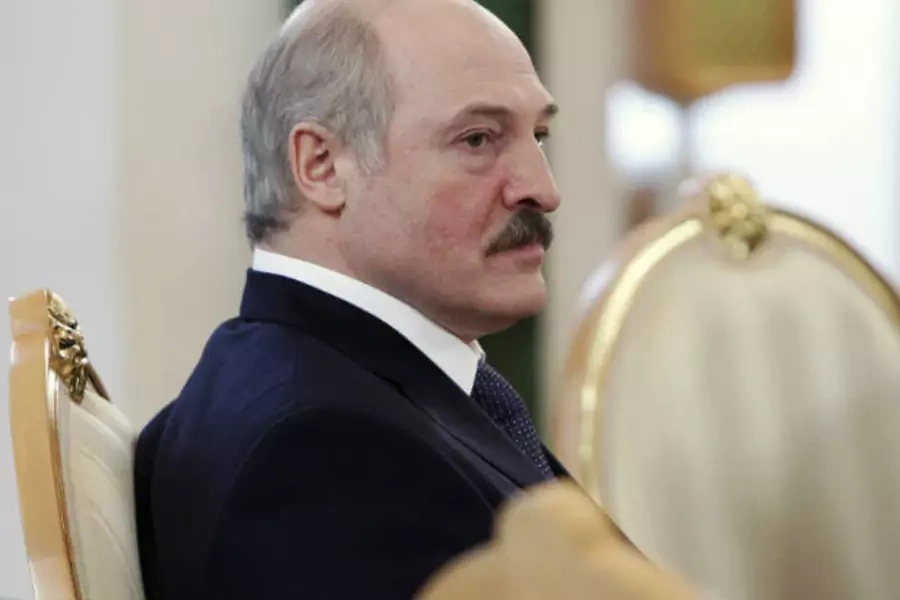Guest Post: Anya Schmemann on Putting the Squeeze on Belarus

More on:
Belarusian president Alexander Lukashenko earlier this month released a prominent political opponent and his aide from prison. The move looks to have been in response to tough travel bans and asset freezes that the European Union (EU) has imposed on Belarus. My colleague, Anya Schmemann, keeps a close eye on events in the former Soviet Union, so I asked for her assessment. She had this to say:
Europe’s “last dictator” seems to be feeling the squeeze.
In an unusual show of unity, strength, and resolve, the EU recently froze the assets of twenty-nine Belarusian companies, blocked several accounts, and banned travel to the EU for a number of officials and business people—the toughest Western sanctions yet against Minsk.
And—particularly hurtful to sports fan Lukashenko—EU leaders suggested that Belarus might lose its chance to host the coveted ice hockey world championships in 2014.
The hard line seems to have paid off.
The United States and the EU welcomed the release and pardon of former presidential candidate Andrei Sannikov and fellow activist Dmitry Bondarenko, but called for the immediate release of all other political prisoners. Rights groups say that at least ten opposition activists remain in prison, including another former presidential candidate, Nikolai Statkevich.
Lukashenko, who has stifled dissent and independent media during his almost eighteen years in power, cracked down hard on the opposition following his reelection in December 2010, which he swept with a suspiciously high eighty percent of the vote. Sannikov and several other opposition figures were arrested when they protested election rigging at the polls.
Last month, Belarus detained three other opposition figures who had been on their way to Brussels to meet with EU officials. Belarus also expelled the EU’s envoy and the Polish ambassador. The EU responded firmly by withdrawing all twenty-seven of its ambassadors from Minsk, leaving the former Soviet Republic increasingly isolated.
Belarus, located next to Russia and Ukraine, is in the midst of an economic crisis and saw inflation soar to 108 percent last year. Lukashenko recognizes that his country would be vulnerable to further sanctions and seems to now be indicating that he hopes to repair relations with the West.
Lukashenko has relied heavily on Russian economic support, but has from time to time sought closer ties with Europe to counter Russia’s influence. Russia helped bail out Belarus last year after its currency crisis and Moscow has now urged Lukashenko to privatize state assets—a painful move for Lukashenko. Russia, of course, has its own interests and gave Lukashenko cheap oil and gas in exchange for control over the pipeline network that transports Russian gas to Europe.
The tough measures from Europe are a welcome indication that the EU can and will take strong and unified actions to combat authoritarianism in Europe. The United States, while supportive of the EU measures, has wisely allowed Europe to take the lead on this European problem. Indeed, Belarus has received scant attention in the U.S. media, even though the U.S. government implemented its own sanctions in response to Lukashenko’s brutal crackdown following his fraudulent election.
The decisive EU response to Lukashenko’s actions shows that economic pressure and diplomatic isolation can work when skillfully applied. Europe should now stay resolute and wait for the release of all the political prisoners before lifting sanctions.
If Lukashenko takes steps in the right direction, he himself can loosen the vise around him.
More on:
 Online Store
Online Store